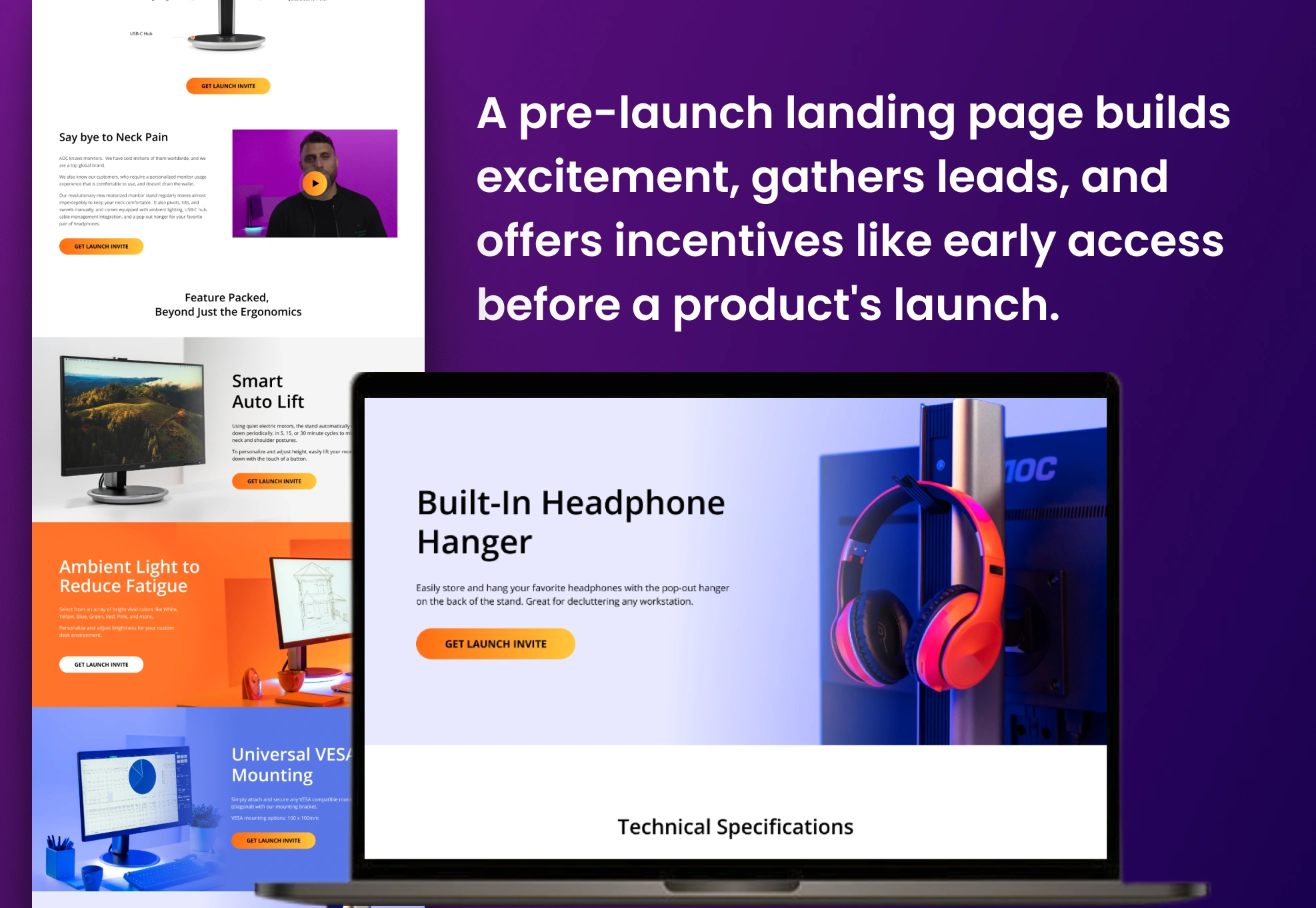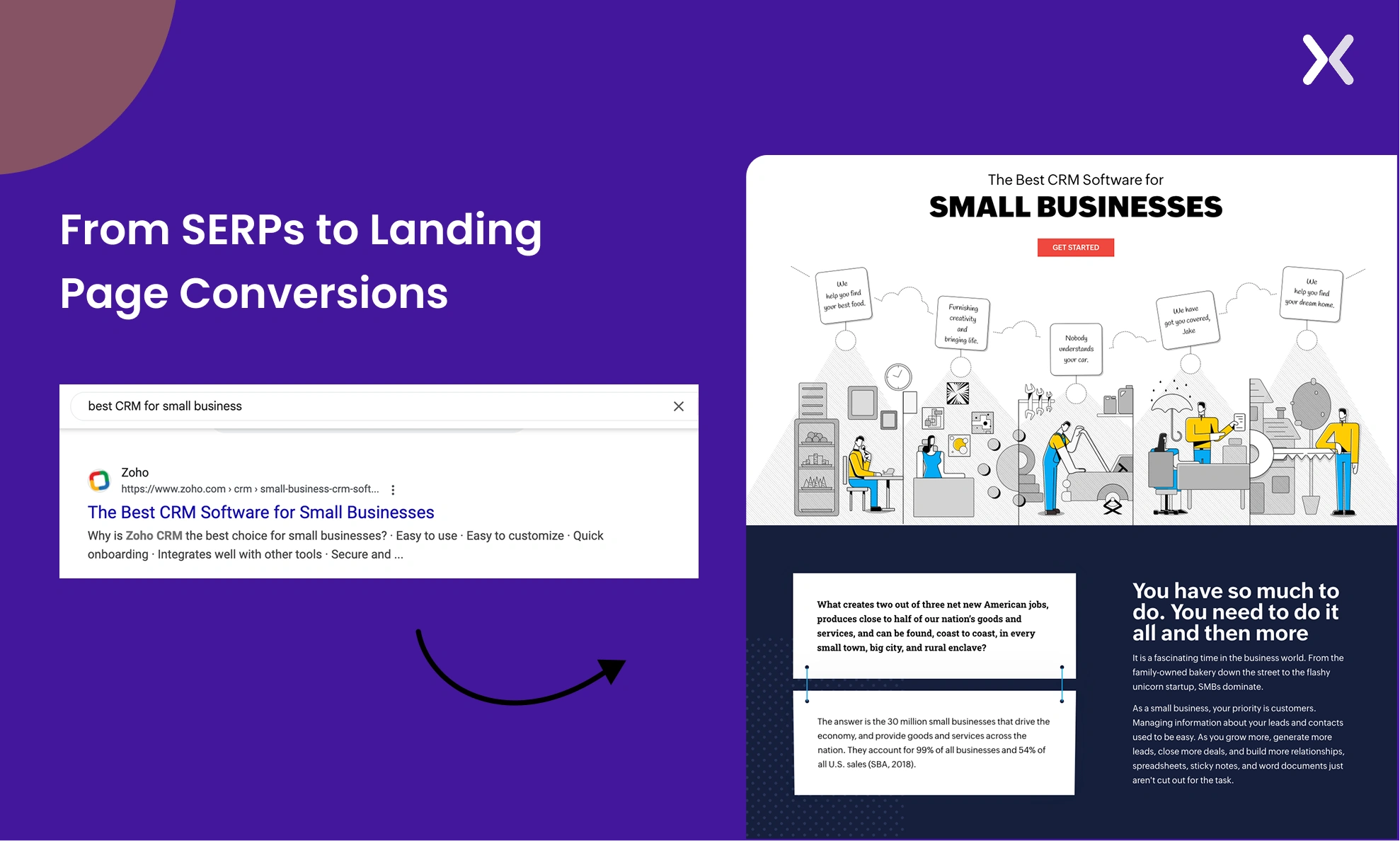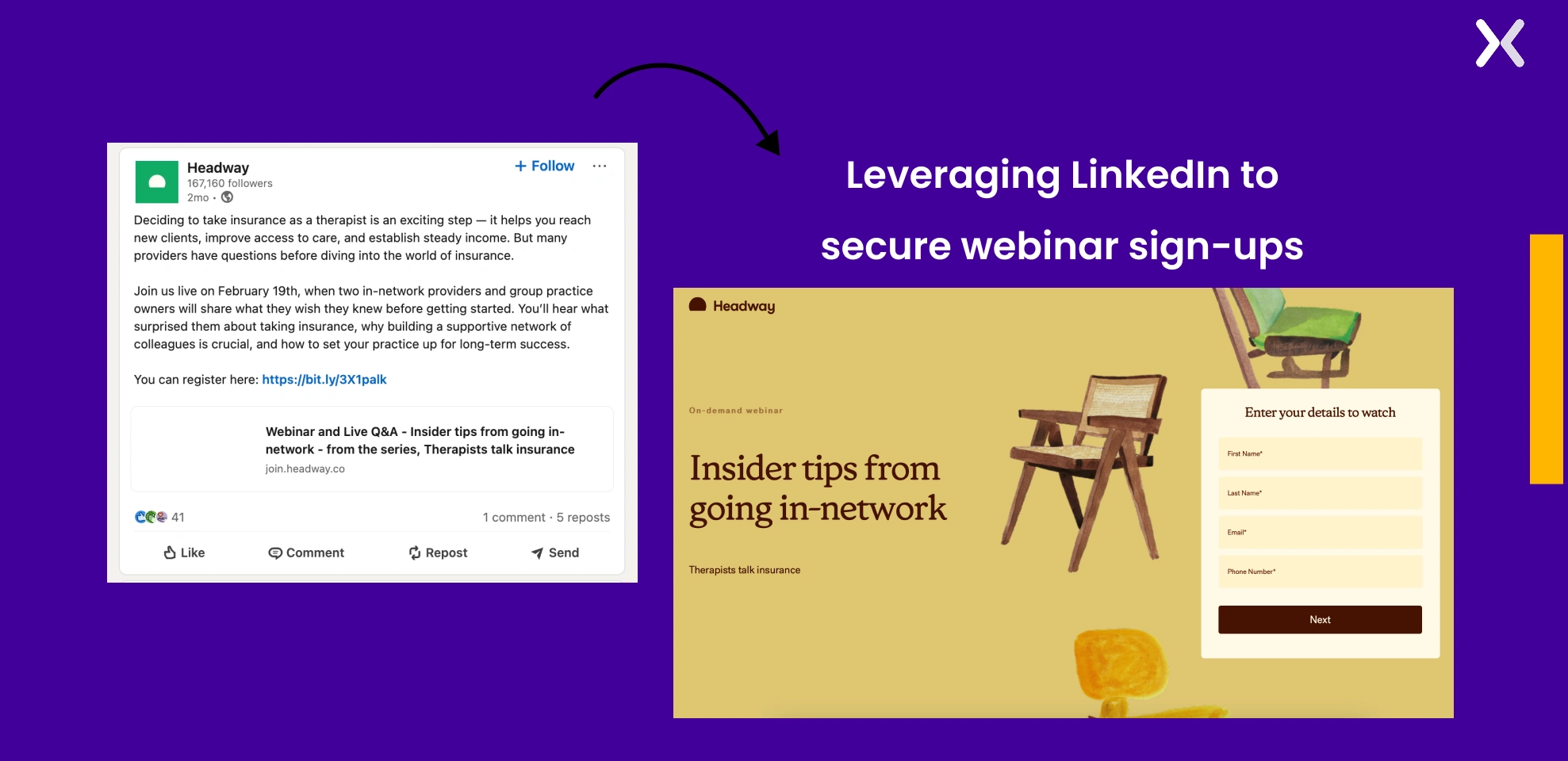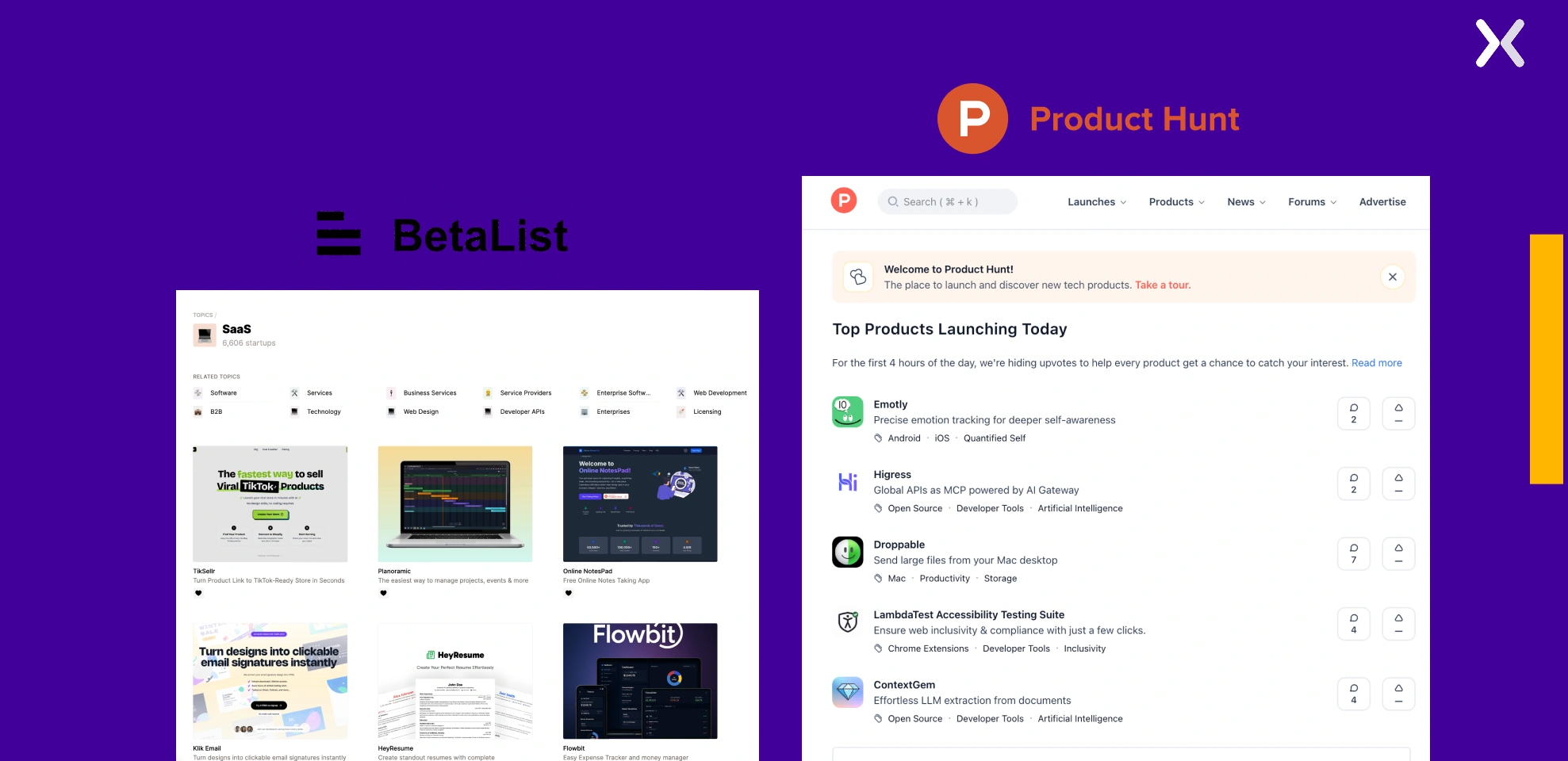Every B2B SaaS lead generation starts with cold outreach. But is it worth sticking to one strategy when you’re just starting? Knowing what’s working and what’s not is hard when you have a limited audience reach.
The correct way is to be patient and test a mix of different tactics. We are not going to tell you to stop doing cold outreach. But it is time you diversify your SaaS funnel. That’s how you figure out what fits your product and audience.
In this article, we share a simple guide filled with proven ways to generate B2B SaaS leads. It will give you plenty of options to try and make your SaaS conversions grow.
B2B and B2C SaaS funnels differ in KPIs, approval steps, and sales cycles.
In B2C, people usually decide quickly as people buy the SaaS for themselves. Whereas in B2B, the software is used by several team members. Hence, it is a big decision for a company and takes longer to finish than a B2C sales cycle.
While in B2C, influencer marketing, ads, and organic traffic might do the trick to get conversions, B2B is a different game altogether. B2B SaaS lead generation often includes things like demos, webinars, in-depth content, and personal follow-ups. You’re not just selling software — you’re helping someone solve a real business problem, and that takes time and trust.
Before you start trying to get leads, you need a few things in place. Skipping this step is why a lot of early efforts don’t go anywhere.
Your MVP isn’t just a prototype — it is the best way to collect target persona feedback and win some early sign-ups. You need to pay attention to the visitors’ demographics and firmographics on the MVP and ask for feedback actively. That’s how you can build strong buyer personas and find the right brand voice.
Even with a few users, there’s a lot you can learn from their behavior and queries.
If your MVP is not ready, you can start by creating a buzz around your SaaS with a pre-launch campaign. At this stage, the most crucial element for you is data acquisition. Building your SaaS presence on social media, forums like Reddit, Indie Hacker, etc., ensures that when you finally launch, there are users to try or buy.

You can also try the “build in public” approach—share your progress, challenges, and small wins as you go. It builds trust, attracts early followers, and creates a community that’s ready to support your launch.
You need your target personas in place before you start B2B SaaS lead generation. There is no need for a fancy document, but a basic idea of what problem and whose problem you are trying to solve gives clarity when building campaigns.
What kind of companies? What roles? What pain points? Start simple and tighten it up as you learn more from your early users and outreach.
There’s no right B2B SaaS lead gen channel to pick from the start. You might think cold email will work, but content ends up performing better. Or maybe paid ads flop but LinkedIn comments bring in demos.
Treat the first few months like a testing phase. You’ll get better results once you see what actually works for your product.
There’s no single strategy that works for everyone. Some founders get early traction through content, others through cold outreach or paid ads. The key is to test a few, see what clicks, and then double down.
We have divided B2B SaaS lead generation strategies into organic and paid, so that you can plan your campaigns within your budget.
Organic lead gen strategies are for those SaaS that don’t have a high budget for marketing, but are ready to invest time in relevant campaigns. Let’s see which organic lead generation strategies you can use as a SaaS owner.
SEO and content marketing are two terms that go hand-in-hand if you want to establish a presence on search engine result pages (SERPs). With the help of both, you can deliver relevant and helpful information to your client while establishing brand authority. You can start by writing blog posts for various SaaS funnel stages (like how-to guides and case studies).

Remember, organic content marketing is a long-term game and it might take some time before showing some tangible results.
Traditionally, cold outreach meant picking up the phone and calling prospects directly. Then came the rise of cold emailing, thanks to the internet. But you might be sending 100s of emails a day and not getting any replies.
You can surely use ChatGPT-written cold email copies, but they need to be refined and tested.
We recommend you A/B test your emails. From the subject line, preview line, to the sender’s profile picture & name, test everything that can get you a good open rate. Then you can move on to test your email format and CTAs to find what performs the best for you.
Now, there’s an even more effective way to connect—LinkedIn.
For B2B businesses, LinkedIn is a goldmine. You can easily find detailed information about your ideal clients, from their roles and interests to the content they engage with. Building relationships is simple—leave thoughtful comments on their posts, start a conversation through direct messages, and gradually naturally introduce your services.
We recommend combining both cold emailing and LinkedIn outreach to maximize your results. Together, they create a powerful strategy to connect with the right people at the right time.
Making B2B folks sign up for a demo can be asking for a lot. What you can do instead is create an interactive demo, which details the most crucial USPs of your SaaS in action.

Highlight your user interface, and make it easy for visitors to request a personalized demo with a clear CTA nearby. This approach works great on both your homepage and your dedicated demo landing page.
Free trials and Freemium models can help you build the trust you need to get those leads to convert into long-term clients. They’re interactive, offer deeper insights into user behavior on your SaaS, and create a win-win situation. You gain valuable data to improve your product, while users get a tool that helps them solve real problems.
This can help you build trust and get more sign-ups, especially if your product delivers value quickly.
You can leverage sites like Betalist, Product Hunt, etc., to gain visibility in places built to promote SaaS products.

It’s crucial that your messaging and unique selling points (USPs) are clearly communicated on your profile. Many businesses searching for ways to optimize their processes are actively looking for the right solution, so your profile needs to be well-optimized to show up at the right place, at the right time.
Let’s move on to some paid lead gen strategies for SaaS.
Paid ads are not present on every platform. Be it Google, LinkedIn, Facebook, or Instagram, they work as a great way to generate traction and conversions.
If you have the budget, find the relevant keywords and start targeting your audience. You can start with low-budget tests to see what resonates, and then scale up. Retargeting visitors who’ve interacted with your content or site is also a great way to stay top of mind.
Yes, influencer marketing can also be used for B2B SaaS lead generation. Like finding the right keywords for your paid ads, for influencer marketing, you need to find the right influencer for your SaaS.
Look for influencers who are trusted voices in your industry, whether they’re niche content creators, thought leaders on LinkedIn, YouTube, or respected bloggers. The right partnership can boost your credibility, expand your reach, and drive highly qualified leads.
Paid ads or organic traffic, all B2B SaaS lead generation strategies require one essential element: a dependable landing page. Landing pages are built with a hyper-focus on conversions for specific campaigns or audiences.
For example, if you’re running a paid ad for a specific feature, your landing page matches that feature and speaks directly to the user’s pain points. For SaaS businesses, creating free trial and booking a demo landing pages completes their funnel and makes it more efficient.
Best Practices for Landing Pages:
Keep the messaging focused: Make sure the value proposition is clear and aligned with the ad or content that led them there.
Include social proof: Testimonials, case studies, or trust badges can build credibility quickly.
Strong call-to-action (CTA): Be clear about what you want them to do next — whether it’s signing up for a demo, downloading a guide, or starting a trial.
Here are some crucial stats for B2B SaaS businesses. You can utilize these to set benchmarks for your campaigns. They may vary according to industry, product type, and sales process, but they can help you get started.
Visitor to Lead Conversion Rate: Typically ranges from 0.9% to 2.3%, depending on the industry.
MQL to SQL Conversion Rate: Generally falls between 16% and 20%, reflecting the qualification process as leads move through the funnel.
Trial to Paid Conversion Rate: For free trials, conversion rates to paid subscriptions average between 8% and 12%, with top-performing companies achieving up to 25%.
Freemium to Paid Conversion Rate: Freemium models typically see conversion rates ranging from from 3% to 7%, with the best companies reaching 15%.
Here’s a list of tools to help you get started with your B2B SaaS lead generation journey.
Prospecting is the first step towards efficient B2B SaaS lead generation. You need to know who your target persona is, where they spend time, and how to reach them. These tools help you find accurate data and identify the right decision-makers.
Apollo: Great for finding and enriching contact data. It also offers built-in email sequencing.
LinkedIn Sales Navigator: Ideal for identifying and connecting with decision-makers.
You need a good landing page builder to support your paid and organic campaigns. And it should also support you when you start scaling. It should help you with testing and analyzing what worked for which campaign.
Unbounce: Drag-and-drop builder with built-in A/B testing tools.
Carrd: Lightweight and perfect for simple MVP pages or one-page lead funnels.
While your landing page persuades visitors to take action, your forms are the final gateway to conversion. Creating frictionless forms is easier with form builders that have a user-friendly interface. Here are some of our recommendations.
Typeform: Interactive forms for capturing lead info in a user-friendly way.
Tally: Free alternative to Typeform, super quick to set up and embed.
ConvertFlow: Adds popups, forms, and CTAs to your site with smart targeting.
You can’t improve what you don’t track. Analytics tools show you where your leads are coming from and how they behave, so you can double down on what’s working and cut what’s not.
Google Analytics (GA4): Essential for tracking where your leads are coming from.
Hotjar / Microsoft Clarity: Understand how users interact with your landing pages.
A steady B2B SaaS lead generation funnel is not something you build in a week. It is something that takes time, testing, and patience. You can start small with organic strategies and then stretch out to paid strategies.
Whether you’re experimenting with cold outreach, building landing pages, or writing content, it’s all about figuring out what brings in the right kind of leads for your SaaS.
If one tactic doesn’t work, there are always others to try out. Once you begin to understand your audience, through your MVP, early users, or even failed experiments, lead generation becomes less of a guessing game and more of a repeatable system. Use the tools we shared, focus on quality over quantity, and keep iterating.
Eventually, you’ll find the approach that clicks. And once it does, it scales.
Related Articles:
Drive More Sales or Leads With Conversion Focused Websites and Landing Pages
Get Started
Landing page SEO is for companies still figuring out whether they want to do PPC. We know, PPC...
A subscription landing page is crucial to any marketing campaign, whether for a newsletter or a paid SaaS...
Get quality posts covering insights into Conversion Rate Optimisation, Landing Pages and great design